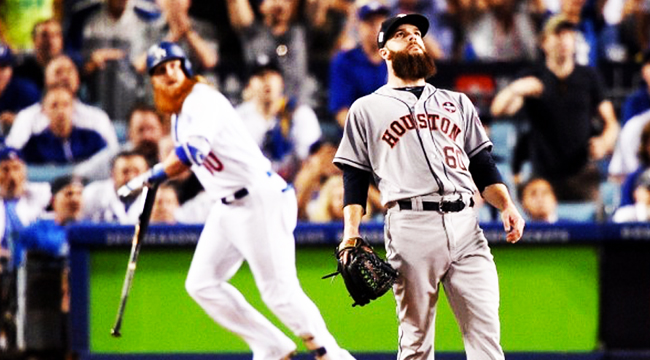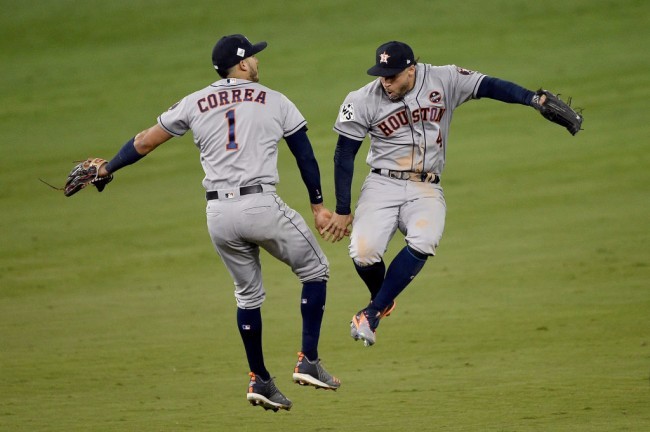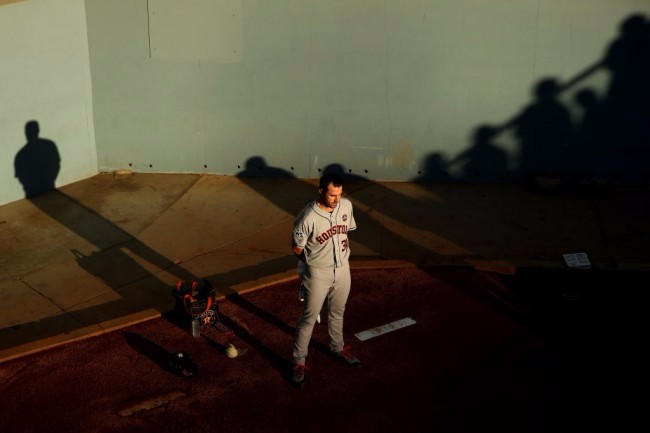
No sport traffics in and thrives off nostalgia more than baseball, which doesn’t just rely on its own history, but the shared stories of glory and failure that define what it means to follow the game. One of the best sports movies of all time is about literal ghosts playing the game, visages of a time gone by. And what other group of fans can just as easily recall great teams of the 1920s or recount precise replays of plays 50 or 60 years old?
In some ways, there’s no better metaphor for baseball fandom than Don Draper knowing every word to “Meet the Mets.”
It’s not just a history of professional baseball that fuels this collective recall. Many of us have clear memories of Little League games followed by Pizza Hut or ice cream. Years later, we can still smell the fresh-cut grass of the outfield, see the infield dirt sparkling in the early evening summer light, tingle at the euphoria of filling our lungs following a slide into second base. And there’s no bigger cliché than playing catch with a parent in the backyard, but there are few more lasting images for any son or daughter.
More cliché still, perhaps, is the reenacting of stepping to the plate in the bottom of the ninth with two outs to win the World Series. For the overwhelming majority of us, that will never be more than a fantasy. Watching the actual championship fought over, there’s something almost experiential about it, with our own tragedies and triumphs played out on the field, our own personal ghosts to remember.
And there’s something unique to the sport simply in the act of conveying such bygone feelings. In most sports, it would seem saccharine. With baseball, it works.
This emphasis on history is also the greatest flaw of America’s pastime. Think about stodgy old white dudes talking about when the game was better, ignoring advanced stats, and bemoaning the game’s unwritten rules not being upheld.

But when the calendar hits October and the playoffs commence, critics often melt away along with their complaints. By the time the World Series arrives, baseball has been distilled to its purest essence, its simplest form: team vs. team, pitcher vs. batter, manager vs. manager for all the marbles.
Oddly, all of the characteristics of the modern game that draw the most criticism — the game is too long and/or too slow — are amplified in the postseason. We’ve already endured a playoff game featuring more than a dozen in-inning pitching changes.
Last year, one of the most dramatic moments in World Series history — and, by extension, baseball history — came only after a rain delay. Some suggested it was the delay that helped buoy the Cubs to their first World Series win in nearly a century, but the weather (and resulting delay) only served to intensify the coming drama.
The 162-game regular season slog can strip baseball of significant appeal because of the banality of the grind. We lose the fun, the character, the urgent essence of the journey. With 12 games a night, how can we fans focus and fret over every detail, every stat, every acronym, every ball in play and runner in scoring position?
The majesty of the World Series lets stars ascend in a league that consistently fails to market its top players effectively, thereby letting clutch postseason performances give way to instant mythmaking. A player may be branded for life as a champion or forever stained with one moment of failure.
It’s true that playoff beards, walk-off hits, and assorted highlight reel plays make for easy Twitter highlights, but come World Series time and we’re also parsing base-running decisions, pitching changes, and all the minutiae that normally bog down the casual fan.

One of the best pieces of recent baseball writing is a Tom Verducci piece on an advanced scouting report that helped propel the Royals into the World Series. It was based on the subtle tics of a pitcher and the throwing tendencies of an outfielder. This showed what makes baseball so dynamic, so fascinating, so incredibly dramatic — and also what frustrates so many of us. The reliance on nearly imperceptible details is now an inherent part of the game.
In the World Series, those details magnify. Adjudicating them becomes critical, central to figuring out what’s going on and why. The small stuff? It matters.
They matter during the regular season, too, but it’s hard to get casual fans excited about meticulous scouting reports in April or May.
The regular season has, in its own way, become like that fifth starter at the back of the rotation. He’s just out there eating innings, holding down the fort until the ace comes back around.
We watch because we have to and because a team can’t make the playoffs (or have a shot at a pennant) without successfully slogging through the first six months of the season. But when the postseason comes, when the World Series finally gets here, every baseball fan gets to fully immerse themselves in the game.

Everything matters.
Everything that makes the game great, and everything that makes it unappealing to non-baseball fans, it all matters when there are only a few games or a few innings or a few strikes left to determine a champion.
Half-empty stadiums give way to electrifying atmospheres. Frenetic cheers from the Fenway crowd reacting to a David Ortiz home run drowning out the broadcast call are every bit a part of that historic moment as the crack of the bat.
Football or basketball may be better team sports because the pieces work fluidly in concert, but in baseball we get to see every part — every strike, every ball, every pick in the dirt, and every off-balance throw. The pieces are laid bare for the audience; no helmets cover the players’ faces and fans are literally close enough to affect an in-game outcome.
Those details all merge together to paint a picture that has the constant potential to become an indelible image in our minds. This is what makes baseball so rife for romanticizing (if you win) and eulogizing (should you fall short). And either way, it forms a collective experience that repeats itself every October without fail.
Nostalgia one gets to relive every year, over and over?
No wonder Don Draper loved baseball.
Peter Bukowski is a reporter and sportscaster living in New York. He hates your favorite team and makes dumb jokes on Twitter.






